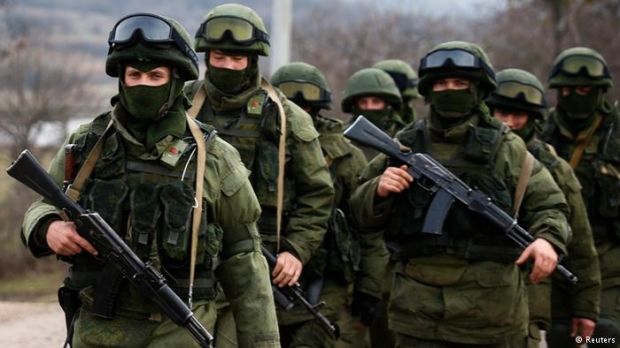
She told the people in the Volnovakha SBU about Russian officers and ordinary soldiers receiving treatment in her hospital. Since Russia continues to deny its active military involvement in the war in Donbas, this was enough for the Kremlin-backed “republic” to “sentence” her to 10 years’ imprisonment, KHPG reports.
“I really did have access to the sort of information that the terrorists were concealing. For example, that Russians were being treated in the hospital. … Not just simply Russian citizens. These were professional Russian soldiers. I even remember the name of one of them – Alexander Nabiev, from the Amursk oblast, an officer. The guy’s leg was blown off. He’s gone on a reconnaissance mission and trod on a mine,” the nurse told Glavred.
“All of the rank and file soldiers had their documents taken away. And then when one of them arrived at our hospital with wounds, they came to him and said that he wasn’t a soldier, that he’d been dismissed the day before. When the man is already missing an arm or a leg, he’d shout, “how am I not in service, how?” That was how it goes, that’s the kind of practice there,” she said.
Hayeva’s account is in keeping with other reports about Russian military involvement in Donbas, and will hopefully be expanded upon in coming months. For the moment, she and many of the other former prisoners are at a government clinic, recuperating after their imprisonment.
During periods of intense military action, they would get around five or six men at the same time admitted to the hospital. All with serious wounds, requiring amputation.
She never saw any Russian passports, but that, she says, was because they were taken away. They had some kind of local document on them, but in conversations they would confirm where they had come from.
Read alsoUkraine's deputy minister for occupied territories hopes for next hostage swap within two monthsHayeva says that during the 15 months of her captivity, she learned more details about Russian involvement. She asserts that there is a Russian overseeing each ‘investigator’s’ work within the so-called ‘DPR ministry of state security and that each lawyer has to account for his or her work at a coordination center in Rostov (in Russia). There were Russians imprisoned with her, including a man she believes to have been a Russian officer – Alexander (Sasha) Trudnenko. She says that he had been set up and punished as somebody in his military unit was selling weapons.
The information Hayeva divulged is of vital importance for holding Russia to account, including at the International Criminal Court at the Hague. It is for this reason that Russia and the militants it is funding, arming and controlling in Donbas come down very hard on those who expose the truth.
Valentina Melnykova, Head of the Union of Russian Soldiers’ Mothers Committees, recently noted that Russia has followed the Soviet tradition of not publicizing fatalities. She believes the secrecy about deaths of Russians in combat in Donbas may lie partly in the ‘insurance’ payments the families get, and feels frustrated that families have so easily given in and agreed to be silenced. The revelations about the Pskov paratroopers killed in Donbas in August 2014, about other deaths and about attempts to hush them up have not reached the public realm since 2014.
Read alsoKlimkin, Lavrov discuss further release of Ukrainian hostagesMelnykova says that her committees assume a figure of at least 1,500 “Russian so-called volunteers, in fact, Russian conscripts, soldiers, officers
Melnykova told the BBC Ukrainian Service there is no chance at present of calculating the number of deaths and calls the situation “terrible”.
“From the beginning of military action, Russian soldiers were sent there without documents, without identification tags, depersonalized, in accordance with unknown orders and with unclear status. It’s impossible in principle to give an exact calculation, there can only be folklore methods of calculating.”
Russia denied from the beginning that it was behind the military conflict in Donbas. It continues to claim, for example, that soldiers captured 30 kilometres into Ukrainian territory ‘got lost’, that two military intelligence officers seized after the killing of a Ukrainian soldier had ‘resigned’ months earlier and that the sophisticated tanks and other equipment used by Kremlin-backed militants “were found in Donbas mines”.


